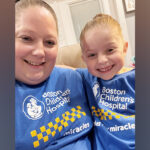Muriel’s story: Choosing life after loss
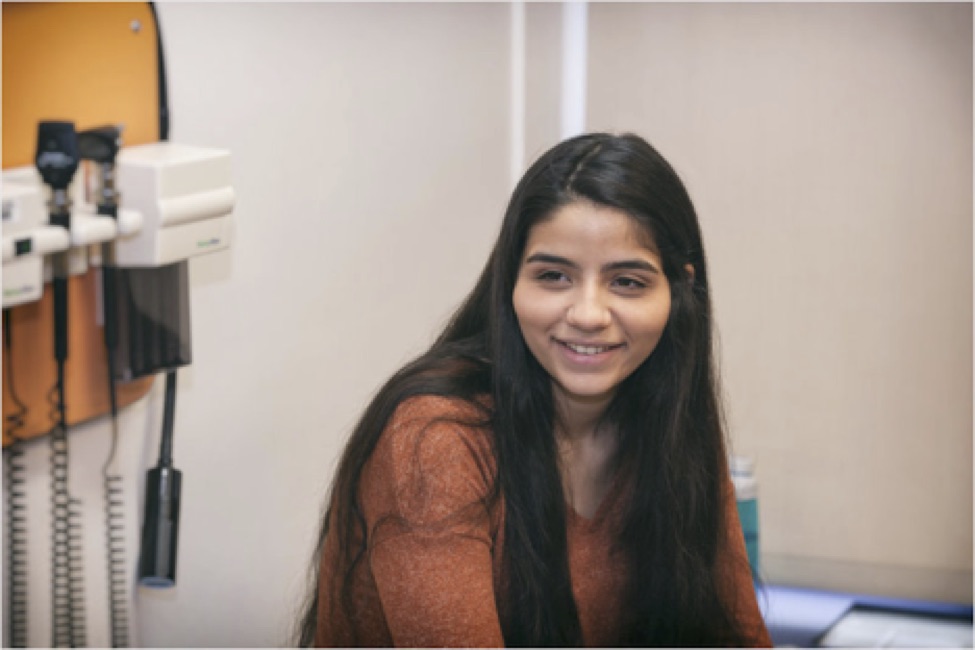
I was with my mom when she had a heart attack. I was only 3 years old, but I remember her falling down and the EMTs arriving and later being told she had passed away.
As I got older, I understood that my mom’s weight and health habits caused her heart disease and ultimately her death. As a kid who was always overweight, this haunted me.
In elementary school, I knew I was bigger than everyone else, but I was active and played soccer, so I didn’t really worry. By sixth grade, I weighed 130 pounds when everyone else was around 90 pounds. Before the start of sixth grade, I had parted ways with my soccer team because I was afraid of how competitive the game had become. I was playing soccer for fun, and I didn’t want to hold my peers back.
Around this same time, my cholesterol was beginning to rise and I became pre-diabetic. I reached 200 pounds around 7th or 8th grade, in the midst of a few other diagnoses that were treated with medications that made me gain crazy amounts of weight.
When I stepped on the scale my freshman year of high school and I saw that I was 275 pounds, I promised myself I would not get any heavier. I was determined not to let what happened to my mom happen to me. I had already worked with a dietitian in a medical weight management program without much progress. That’s when I talked to my pediatrician, who referred me to the Adolescent Weight Loss Surgery Program at Boston Children’s Hospital.
Preparing for weight loss (bariatric) surgery
The weight loss surgery team at Boston Children’s — Dr. Richmond; Annemarie, my nurse practitioner; Leslie, my nutritionist; Megan, my social worker — they’re like a little squad. As absurd as it sounds, I’d never had a group of doctors be so kind to a fat person.
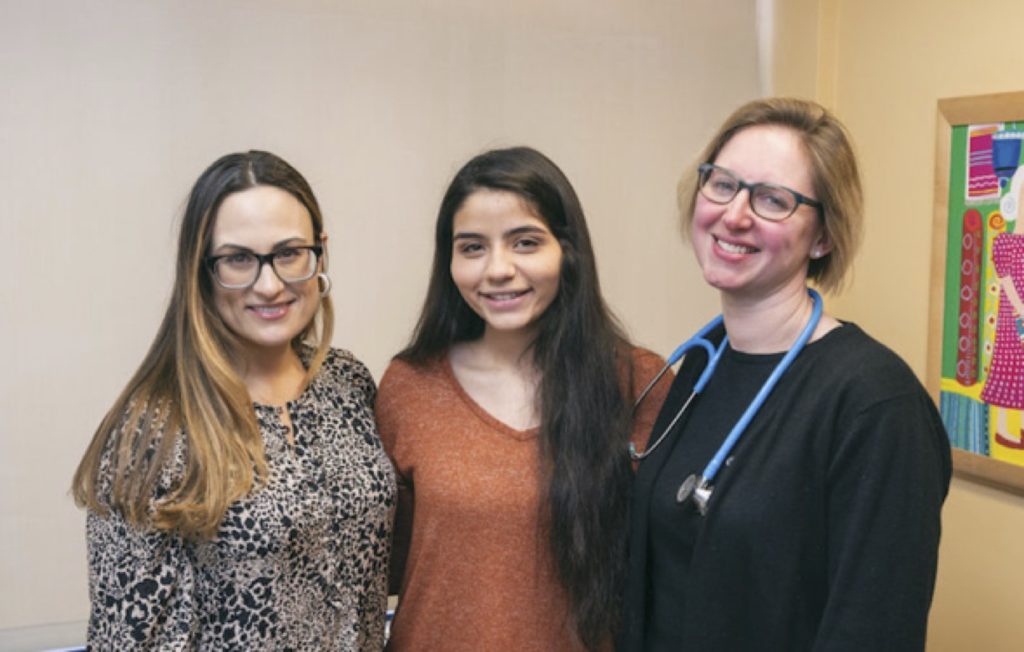
Since I’ve been overweight my whole life, I had experienced doctors who were compassionate, but also ones who were pretty disrespectful. My primary care doctor at Boston Children’s was always positive and supportive towards me, and she was one of the first doctors who had treated me no different than any of her other patients.
It wasn’t really until I had met the weight loss surgery team that I knew what it was like to have an entire group of doctors cheer me on during one of the most difficult hurdles of my life.
The beginning of the program focused on medically-supervised weight loss and exercise. I followed the plan the team put together and by the end of 6 months, I had only lost 9 pounds even though I’d made a lot of healthy eating and lifestyle changes. They helped me understand that it wasn’t my fault. Even when I was doing everything right, my family history was at play.
There were times I felt discouraged, but I just tried to stay motivated and involve myself in as much as possible. It helped to have support from family members who had been through something similar and other kids I knew from a weight loss program I had joined for teens.
Gastric sleeve surgery
I talked to my surgeon, Dr. Carmine, about gastric bypass versus gastric sleeve surgery. Because I was young and pretty healthy, we decided on gastric sleeve. I was afraid of the whole “dumping- syndrome,” and I feared that I wouldn’t be able to have a slice of cake on my birthday without getting sick. Everyone’s different, but I’m just a scaredy cat.
For the two weeks before and after surgery, I could only eat protein shakes, sugar-free Jello, broth and water.
As Dr. Carmine wheeled me into surgery, I remember seeing the faces of Dr. Richmond and Megan. They stayed in the operating room with me, which was really comforting. In a situation so foreign, it was nice to see familiar faces. I didn’t expect them to be there during the actual procedure, but it meant a lot, especially with it being my first surgery.
The surgery wasn’t bad. Throughout the program, the team had stressed the importance of walking after surgery, so quite literally when I woke up from surgery, I asked, “Can I take a walk?” The nurses responded with, “No sweetie, you’ve just woken up! In a few hours you can.”
Life after bariatric surgery
Two months after surgery, I was back to eating normal foods. Within a year, I’d gone from 275 to 172 pounds and from a BMI of 42 to 27.
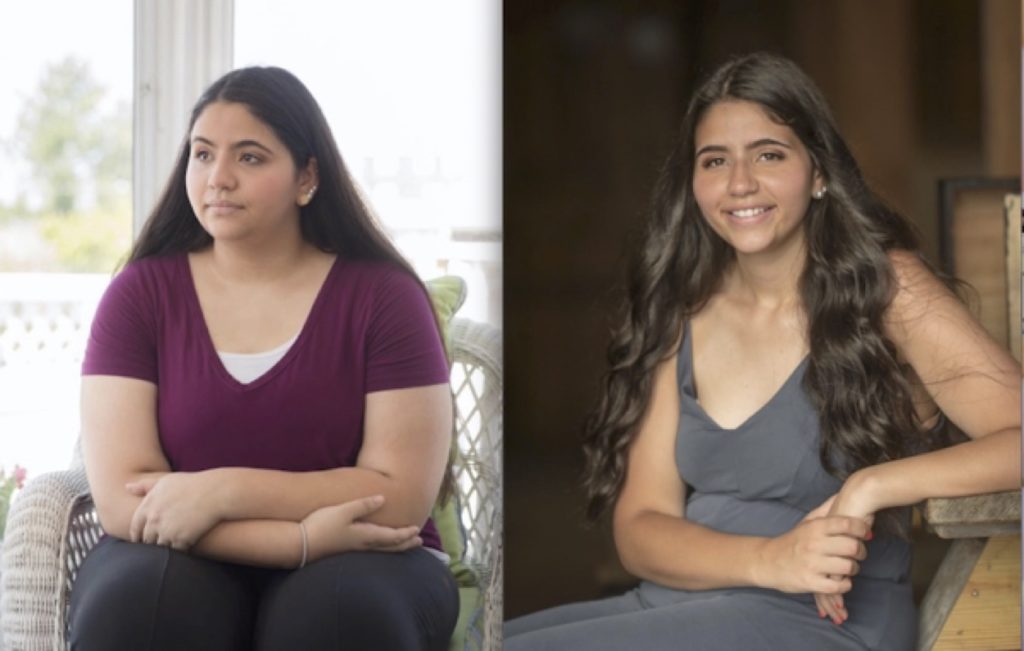
My risk of diabetes is now significantly lower, my levels of liver inflammation are normal and I no longer feel like I’m going to pass out when I walk up three flights of stairs at school. I can shop in the regular clothes section and wear almost whatever I want.
I’m pretty proud of the outcomes, even though sometimes it’s hard for me to see my own victories.
Many people believe that weight loss is the “cure- all” to everything. Weight loss certainly has its perks, but it’s not nearly as glamorous as everyone often makes it out to seem. When I began on this journey, my hopes were to simply be healthy. I thought of myself as pretty confident, but I still had several insecurities that were not worked out.
As time has passed and I’ve lost a huge amount of weight in such a short time, other insecurities have come to surface. I have the most minor extra skin and I am so negative about it.
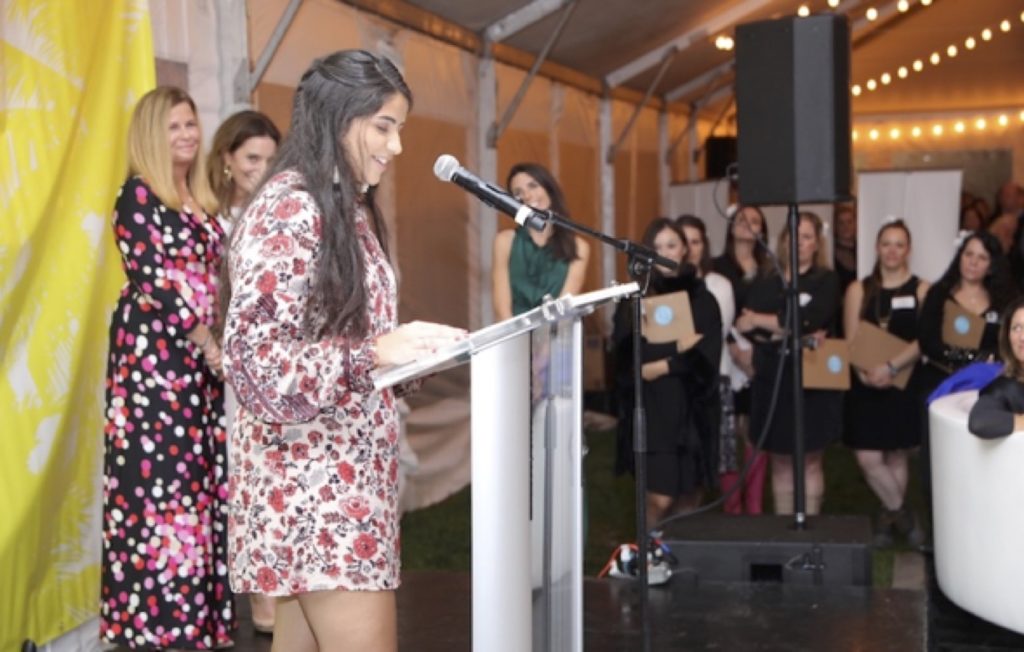
I try to remind myself that that the skin is not important. I did this for my health and my future. It helps to say to myself, “Girl, get over it, you lost 103 pounds!
Learn more about the Adolescent Weight Los (Bariatric) Surgery Program.
Related Posts :
-

How a meniscal transplant made me a Boston sports fan
I was in kindergarten when my knee started popping and cracking. My parents and I didn’t know it at ...
-

Hard and beautiful at the same time: Five lessons of raising a medically complex child
When they learned they were expecting a baby, Michelle and Stephen Strickland were delighted. The South Carolina couple looked forward ...
-

‘Challenge accepted’: Sophia takes on a brain tumor
In 2023, Sophia Mordini landed the role of a lifetime. A competitive dancer, the 12-year-old would play Clara in her company’...
-

After surgeries to treat HLHS, Carter is healthy and happy at home in Florida
Carter Miller loves action. The 4-year-old Florida resident enjoys riding on golf carts and flying high on swing sets. ...



